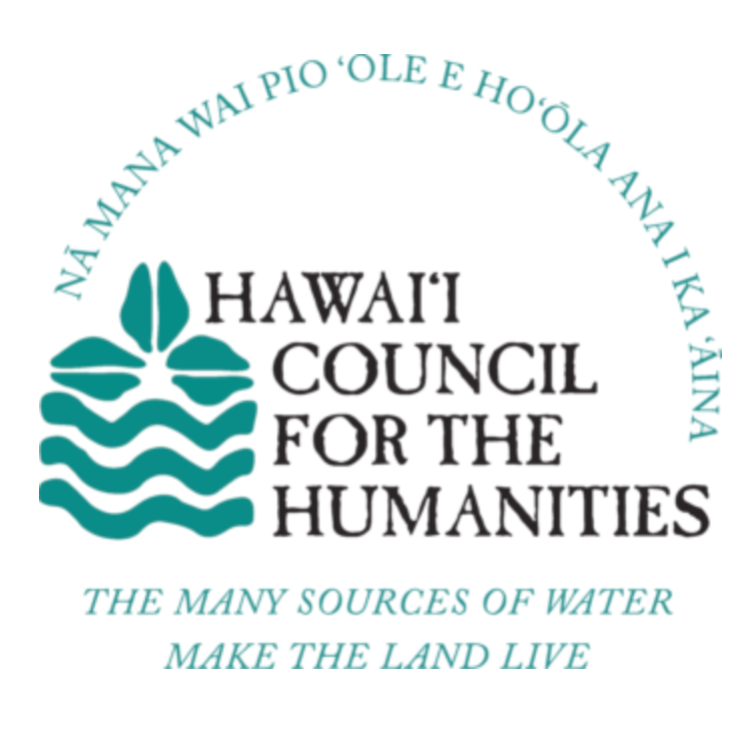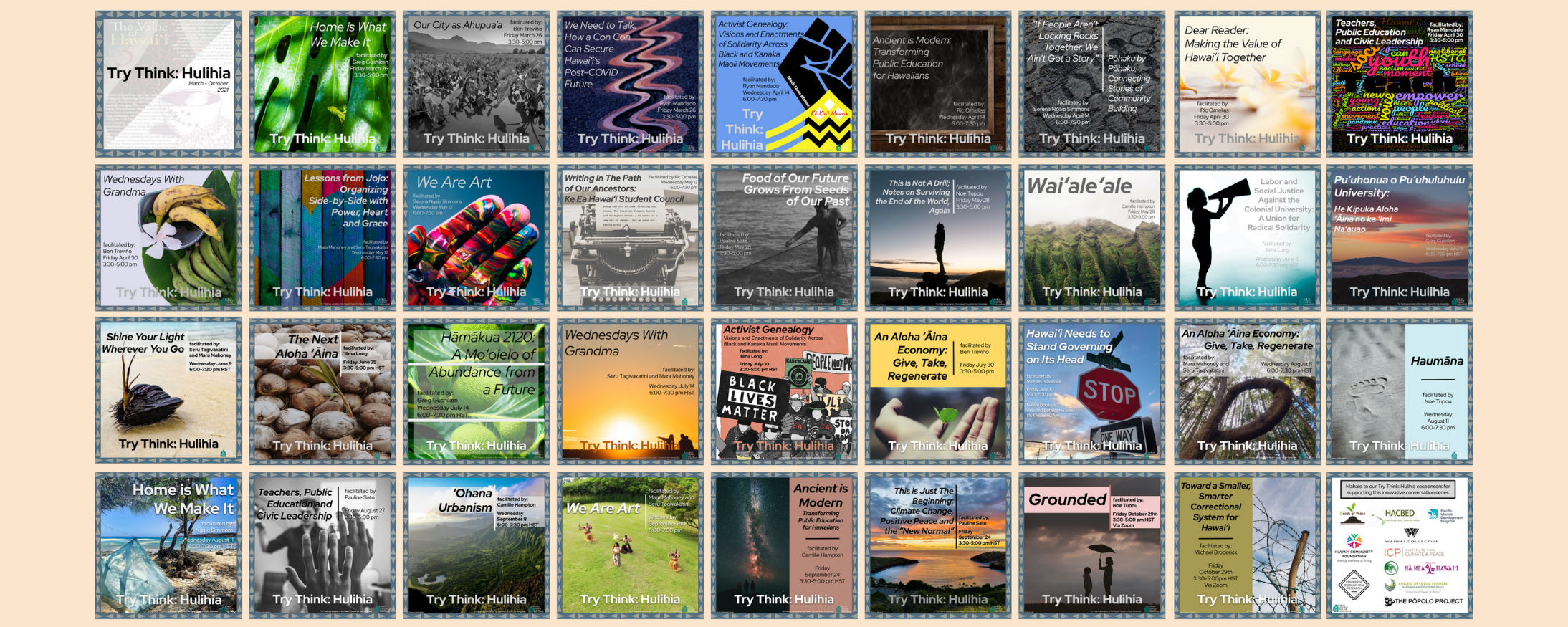We believe that genuine conversation builds community, and we know that we need new ways of community building to help us face all our challenges ahead. Different from the idea of the “new normal” or “going back to how things were,” the Hawaiian word and concept “hulihia” helps us face our turmoil more directly and opens up greater future opportunities. As Value of Hawaiʻi: Hulihia book coeditor Dr. Noelani Goodyear-Kaʻōpua puts it, “imagining new possibilities can be the best consequence of this undeniable phase of massive disruption and overturning of the assumed normal.”
How can we build trust in each other and in the realization that we are who we need?
How much we can eat from one banana tree?
We were proud to partner with Value of Hawaiʻi: Hulihia, for this program, where we held space for deep-dive community conversations on our ideas, wonderings, hopes, and challenges for our post-pandemic futures. Small groups of very diverse voices from across our islands tackled different topics together, and spent time listening, sharing, imagining, and building new connections.
These Try Think events were opportunities for small groups of diverse voices to speak and be heard. Each conversation was led by a thoughtful facilitator, to help to create a space where we felt valued as full people. Each conversation topic was inspired by a Value of Hawaiʻi Hulihia essay, which can be read for free online HERE.
What will it take to begin again now, in ways that open futures, rather than continue to foreclose them?
What kind of ancestors do we want to become?
We need many voices to do this right, and all are welcome to attend. We would love to hear your perspective on topics that range from reinventing public education to revisioning elder care to returning to old-new economies, and more. We invite you to stay connected here on our website and our social media platforms where we will share future events and programming updates.
The innovative Try Think Hulihia conversation series was co-sponsored by the following organizations: Ceeds of Peace, Center for Biographical Research, Hawaiʻi Alliance for Community-Based Economic Development, Hawaiʻi Community Foundation, Institute for Climate and Peace, Matsunaga Institute for Peace , Nā Mea Hawaiʻi / Native Books, Pacific Islands Development Program , The Pōpolo Project and Waiwai Collective.
Mahalo to the Sidney Stern Memorial Trust for making this work possible.
Friday March 26 – 3:30-5:00pm HST
***This session has three conversation topics. Please register for one topic of your choice below.
Our City as Ahupuaʻa—Ben Treviño, Facilitator
How can we turn our individual gifts and contributions into a resilient economy for Hawaiʻi? A conversation on new ways of thinking about urban life. You can find this essay HERE.
Register HERE.
Home is What We Make It—Greg Gushiken, Facilitator
How do we work to build home, to build puʻuhonua, in spite of the challenges we have faced in light of COVID-19? How do we re-learn how to care for and support each other as a community? A conversation on new ways of thinking about houselessness and belonging in Hawaiʻi. You can find this essay HERE.
Register HERE.
We Need to Talk: How a Con Con Can Secure Hawaiʻi’s Post-COVID Future—Ryan Mandado, Facilitator
What can a political future look like for Hawaiʻi? A conversation on the power of policymaking post-COVID, inspired by the legendary Con Con of 1978. You can find this essay HERE.
Register HERE.
Wednesday April 14 – 6:00-7:30pm HST
***This session has three conversation topics. Please register for one topic of your choice below.
Ancient is Modern: Transforming Public Education for Hawaiians—Ric Ornellas, Facilitator
How can we identify learning that is eternally useful or eternally transient and when do we use the eternal or the transient? A conversation exploring models of education outside of the DOE that are grounded in culture, family, and community to help students excel. You can find this essay HERE.
Register HERE.
Activist Genealogy: Visions and Enactments of Solidarity Across Black and Kanaka Maoli Movements—Ryan Mandado, Facilitator
How is genealogy tied to our collective liberation? A conversation inspired by Black Lives Matter and Protect Mauna Kea Movements, about learning to love one another across different struggles. You can find this essay HERE.
Register HERE.
“If People Aren’t Locking Rocks Together, We Ain’t Got a Story”: Pōhaku by Pōhaku, Connecting Stories of Community Building—Serena Ngaio Simmons, Facilitator
What places do we bring with us into this work that we do with each other? How does bringing places we feel kinship to into spaces we aren’t from help us to carry out this work? A conversation about the power of community-led storytelling and media making, inspired by new technology and the Protect Mauna Kea media campaigns. You can find this essay HERE.
Register HERE.
***This session has three conversation topics. Please register for one topic of your choice below.
Friday April 30 – 3:30-5:00pm HST
Wednesdays With Grandma—Ben Treviño, Facilitator
What would an economy with the kind of spaciousness that is lived in Wednesdays With Grandma look like? A conversation about grandchildren and grandparents, and the impact of spending time together on family and community health. You can find this essay HERE.
Register HERE.
Dear Reader: Making the Value of Hawaiʻi Together—Ric Ornellas, Facilitator
“Tell me, what is it you plan to do with your one wild and precious life?” A conversation about the power of genuine conversation, listening, and collaboration post-COVID. You can find this essay HERE.
Register HERE.
Teachers, Public Education and Civic Leadership—Ryan Mandado, Facilitator
How can teachers create liberatory futures? A conversation about racism, school mascots, and how youth and teachers are leading efforts to create a more just society. You can find this essay HERE.
Register HERE.
Wednesday May 12 – 6:00-7:30pm HST
***This session has three conversation topics. Please register for one topic of your choice below.
Lessons from Jojo: Organizing Side-by-Side with Power, Heart and Grace—Mara Mahoney and Seru Tagivakatini, Facilitators
A conversation exploring ways to organize across different communities, rooted in Micronesian/Pacific Islander experiences. You can find this essay HERE.
Register HERE.
Writing in the Path of Our Ancestors: Ke Ea Hawaiʻi Student Council—Ric Ornellas, Facilitator
Has the time arrived for paradigm shifts and kupuna listen to haumana? A conversation centered around amplifying youth voices and taking control of narratives. You can find this essay HERE.
Register HERE.
We Are Art—Serena Ngaio Simmons, Facilitator
How do we use art to build relationships? A conversation about art and culture, and how artistic expressions can help us connect with each other in trying times. You can find this essay HERE.
Register HERE.
Friday May 28 – 3:30-5:00pm HST
***This session has three conversation topics. Please register for one topic of your choice below.
Waiʻaleʻale—Camille Hampton, Facilitator
What lessons can we learn from challenges and adversity? A conversation about resilience and innovation of Kauaʻi residents after the torrential rains of April 2018, and paths forward for all of post-pandemic Hawaiʻi. You can find this essay HERE.
Register HERE.
This is Not a Drill; Notes On Surviving the End of the World, Again—Noe Tupou, Facilitator
“Can pilina (relationships) inspire a kind of beginning?” A conversation about re-connecting and re-membering community in the wake of the missile alert, Mauna Kea, COVID-19 and other life-altering events. You can find this essay HERE.
Register HERE.
Food of Our Future Grows From Seeds of Our Past—Pauline Sato, Facilitator
How might we make the concept of food sovereignty digestible to the common Hawaiʻi resident? A conversation about rebuilding food systems and finding our individual roles in establishing food sovereignty. You can find this essay HERE.
Register HERE.
Wednesday June 9 – 6:00-7:30pm HST
***This session has three conversation topics. Please register for one topic of your choice below.
Labor and Social Justice Against the Colonial University: A Union for Radical Solidarity—ʻIlima Long, Facilitator
How are labor unions integral to a better society, not just good contracts? A conversation about organization and unification through the lens of the Academic Labor Unitedʻs ongoing relationship with the University of Hawaiʻi. Read the essay by the Executive Committee of Academic Labor United that is the inspiration for this conversation HERE.
Register HERE.
Puʻuhonua o Puʻuhuluhulu University: He Kīpuka Aloha ‘Āina no ka ‘Imi Naʻauao—Greg Gushiken, Facilitator
What could it mean to center our communities, rather than institutions, in the passing on of knowledge? A conversation about rethinking and reimagining education through the lessons learned and taught at Puʻuhuluhulu University. Read the essay by Presley Keʻalaanuhea Ah Mook Sang that is the inspiration for this conversation HERE.
Register HERE.
Shine Your Light Wherever You Go—Seru Tagivakatini and Mara Mahoney, Facilitators
How can we create sustainable spaces for youth empowerment? A conversation about empowering youth to become their own leaders. Read the essay by Shanty Sigrah Asher that is the inspiration for this conversation HERE.
Register HERE.
Friday June 25 – 3:30-5:00pm HST
The Next Aloha ʻĀina—ʻIlima Long, Facilitator
What work needs to be done to de-silo different struggles in Hawaiʻi? A conversation about antagonism, desire and stakes, and the challenges and tensions that we need to work through in striving toward the hulihia that this time calls for. Read the essay by Mari Matsuda that is the inspiration for this conversation HERE.
Register HERE.
Wednesday July 14 – 6:00-7:30pm HST
***This session has two conversation topics. Please register for one topic of your choice below.
Hāmākua 2120: A Moʻolelo of Abundance From a Future—Greg Gushiken, Facilitator
How can understanding the future, as created every day through our interactions with each other, shift what community means to us after COVID19? A conversation about hope, abundance, and hulihia and the various portals that open from them. Read the essay by Noʻeau Peralto that is the inspiration for this conversation HERE.
Register HERE.
Wednesdays With Grandma—Seru Tagivakatini and Mara Mahoney, Facilitators
Exploring and navigating intergenerational gaps and their complexities: How can we help bridge these gaps in our communities? A conversation about kūpuna and the importance of spending intergenerational time together. Read the essay by Shelley Muneoka that was the inspiration for this conversation HERE.
Register HERE.
Friday July 30 – 3:30-5:00pm HST
***This session has two conversation taking place virtually and one taking place in person. Please register for one topic of your choice below.
Activist Genealogy: Visions and Enactments of Solidarity Across Black and Kanaka Maoli Movements—ʻIlima Long, Facilitator (Virtual Event)
“When we do the work of justice together, when we answer one another’s call to join our several separate struggles, we learn justice from one another and we learn that those struggles are one. We discover that we are related. We choose this family.”
-from the essay, Activist Genealogy: Visions and Enactments of Solidarity Across Black and Kanaka Maoli Movements, by Charles Lawrence, from the book, The Value of Hawaiʻi 3: Hulihia.
A conversation inspired by Black Lives Matter and Protect Mauna Kea Movements, about learning to love one another across different struggles.
Read the essay by Charles Lawrence that is the inspiration for this conversation HERE.
Register for this conversation HERE.
An Aloha ‘Āina Economy—Give, Take, Regenerate—Ben Treviño, Facilitator (Virtual Event)
“An aloha ʻāina economy, one also devoted to a living wage and health care for all, could not only replace our current antiquated and destructive economy established primarily in plantation era Hawaiʻi, but also lead us into a more humane and productive future. GDP cannot register the value of the fulfillment and love that results from living and being provided for by aloha ʻāina.”
-from the essay, An Aloha ʻĀina Economy—Give, Take, Regenerate, by Kamanamaikalani Beamer, from the book, The Value of Hawaiʻi 3: Hulihia.
Do you feel like the work you do is regenerative? What would your work look like if it did feel this way? A conversation about aloha ʻāina and circular economies and their impact on Hawaiʻi and beyond.
Read the essay by Kamanamaikalani Beamer that was the inspiration for this conversation HERE.
Register for this conversation HERE.
Friday July 30 – 5:30-7:00pm
***This session will take place at Native Books at Arts and Letters Nuʻuanu. Face coverings required and limited registration is available in observance of COVID-19 Guidance for Business per Emergency Order 2021-02: Social Distancing Requirements.
Hawai’i Needs to Stand Governing on Its Head—Michael Broderick, Facilitator (In Person Event)
In his essay, Hawaiʻi Needs to Stand Governing on Its Head, Neal Milner says localism, where neighborhoods solve community problems, might be the answer to many of our challenges in Hawaiʻi. What do we need to do to move toward localism in Hawaiʻi? A conversation about Hawaiʻi’s challenges, personal responsibility, and a possible new path forward.”
Join us on Friday, July 30 at 5:30pm for our first in-person Try Think: Hulihia conversation taking place at Native Books at Arts and Letters Nuʻuanu.
Read the essay by Neil Milner that was the inspiration for this conversation HERE.
Register for this conversation HERE.
Wednesday August 11 – 6:00-7:30pm HST
***This session has three conversation taking place virtually and one taking place in person. Please register for one topic of your choice below.
An Aloha ‘Āina Economy—Give, Take, Regenerate—Mara Mahoney and Seru Tagivakatini, Facilitators
“Like the hana of the skilled mahi ʻai and lawaiʻa of old, an aloha ʻāina circular economy should be based on a give, take, regenerate model. Examples are already underway—the Waipā Foundation on Kauaʻi; Heʻeia and West Oʻahu; Hāna, Maui; Molokaʻi; and in pockets on Hawaiʻi island.”
-from the essay, An Aloha ʻĀina Economy—Give, Take, Regenerate, by Kamanamaikalani Beamer, from the book, The Value of Hawaiʻi 3: Hulihia.
A conversation about aloha ʻāina and circular economies and their impact on Hawaiʻi and beyond.
Read the essay by Kamanamaikalani Beamer that was the inspiration for this conversation HERE.
Register for this conversation HERE.
Haumāna—Noe Tupou, Facilitator
“Students have been reminding Hawaiʻi of what is precious, over and over. And they have always been right. Finally, we need to listen.”
-from the essay, Haumāna, by Jonathan Kay Kamakawiwoʻole Osorio, from the book, The Value of Hawaiʻi 3: Hulihia.
A conversation about change, new ideas and the exciting energy of our haumāna.
Read the essay by Jonathan Kay Kamakawiwoʻole Osorio that was the inspiration for this conversation HERE.
Register for this conversation HERE.
Home Is What We Make It—Ngaio Simmons, Facilitator
“For many of the villagers that I got to know on a deeper level, “home” was defined as “places where you feel like returning to” and “places of safety.” One of the most profound lessons is how people created community not by conspiring against what they disliked, but by giving others space to define and redefine life for themselves, by facing precarity as an ‘ohana, and by confidently sharing aloha even as we faced threats to erase us.”
-from the essay, Home Is What We Make It, by Tatiana Kalaniʻōpua Young, from the book, The Value of Hawaiʻi 3: Hulihia.
A conversation about new ways to think about houselessness, belonging, and showing up for our community.
Read the essay by Tatiana Kalaniʻōpua Young that was the inspiration for this conversation HERE.
Register for this conversation HERE.
Friday August 27 – 3:30-5:00pm HST
Teachers, Public Education and Civic Leadership—Pauline Sato, Facilitator
“The aloha ‘āina movement, along with militant labor organizing for strike actions and the #MeToo movement, and new abolitionist energy around racist police practices, have created a context for us in Hawaiʻi in which we can reimagine a new set of purposes for the public sphere, and for public education, forged in the struggle for civic justice. This is a moment in which civic educators, all public school educators, can challenge the neoliberal project by looking to and learning from the powerful pedagogical practices being used by young people.”
-from the essay, Teachers, Public Education and Civic Leadership, by Amy Perruso and Aina Iglesias, from the book, The Value of Hawaiʻi 3: Hulihia.
How do we turn the tables around in education so that teachers and students co-create learning? What does it mean to have civic courage, and can it be taught? A conversation about civic education and the roles teachers and students play.
Read the essay by Amy and Aina that was the inspiration for this conversation HERE.
Register for this conversation HERE.
Wednesday September 8 – 6:00-7:30pm HST
***This session has two conversation taking place virtually and one taking place in person. Please register for one topic of your choice below.
ʻOhana Urbanism—Camille Hampton, Facilitator
“The experience of COVID lockdowns has seeded practices of family togetherness and innovation—practices that if continued could enable or even drive an urban reimagining.”
-from the essay, ʻOhana Urbanism, by Benjamin and Victoria Treviño, from the book, The Value of Hawaiʻi 3: Hulihia.
How could the ahupua’a model help us reimagine urbanism? A conversation exploring the idea “hana is what we did, ʻohana is who we did it with” and how it could relate to post-pandemic life.
Read the essay by Ben and Victoria that was the inspiration for this conversation HERE.
Listen to an audio version of Ben and Victoria’s essay HERE.
Register for this conversation HERE.
We Are Art—Mara Mahoney and Seru Taguvakatini, Facilitators
“Our creative expression communicates Indigenous wisdom to diverse communities, celebrates the best elements of our cultures, and helps us connect to other native peoples with spiritual affinities and shared values. Doing what is best for the collective rather than the individual, respect for elders, living in harmony with the natural world—these are life-affirming, value-generating customs of Pacific Island heritage that could mitigate the societal problems we are currently facing.”
-from the essay, We Are Art, by Mary Therese Perez Hattori, from the book, The Value of Hawaiʻi 3: Hulihia.
What changes when you get the chance to tell your life story in your own words? A conversation about art as a form of resistance; exploring the link between art, identity, and activism with a focus on storytelling by and from Indigenous perspectives.
Read the essay by Mary Therese Perez Hattori that was the inspiration for this conversation HERE.
Listen to an audio version of Mary’s essay HERE.
Register for this conversation HERE.
Friday September 24 – 3:30-5:00pm HST
***This session has two conversation taking place virtually and one taking place in person. Please register for one topic of your choice below.
Ancient is Modern—Transforming Public Education For Hawaiians—Camille Hampton, Facilitator
“When it comes to education for Native Hawaiians, ancient is modern. Methods developed, tested, and employed by our ancestors to prepare future generations to thrive in our islands coincide with the latest in twenty-first century educational and neuroscience research. These methods are still the best for growing and maintaining a thriving lāhui.”
-from the essay, Ancient is Modern—Transforming Public Education For Hawaiians, by Kū Kahakalau, from the book, The Value of Hawaiʻi 3: Hulihia.
What “ancient” lessons can we apply to our “modern” educational system to allow all students to thrive? A conversation exploring models of education outside of the DOE that are grounded in culture, family, and community to help students excel.
Read the essay by Kū that was the inspiration for this conversation HERE.
Listen to an audio version of Kū’s essay HERE.
Register for this conversation HERE.
This is Just the Beginning: Climate Change, Positive Peace and the “New Normal”—Pauline Sato, Facilitator
“Our islands cannot afford to revert back to the pre-COVID normal: a state of being initiated by over a century of Western models of modernization (and globalization) and most recently defined by a creeping climate emergency. Creating pathways to a preferred future for our children and grandchildren simply requires that we take the first step.”
-from the essay, This is Just The Beginning: Climate Change, Positive Peace and the “New Normal”, by Maxine Burkett and Naima Moore, from the book, The Value of Hawaiʻi 3: Hulihia.
Is the COVID-19 pandemic a trial run for future climate change disasters? How might we learn from our current experiences to do better? A conversation about moving forward with intention through and beyond COVID.
Read the essay by Maxine and Naima that was the inspiration for this conversation HERE.
Listen to an audio version of Maxine and Naima’s essay HERE.
Register for this conversation HERE.
Friday October 29 – 3:30-5:00pm HST
***This session has two conversation taking place virtually and one taking place in person. Please register for one topic of your choice below.
Grounded—Noe Tupou, Facilitator
“Would you have needed
to demand your safety then too?
Would we have listened to you?”
-from the poem, Grounded, by Kathy Jetñil-Kijiner, from the book, The Value of Hawaiʻi 3: Hulihia.
kuleana. nvt. Right, privilege, concern, responsibility…
Sometimes kuleana is given to you. Sometimes you take it upon yourself. Sometimes it’s a little bit of both. Kuleana ~ do you know yours? A conversation exploring our kuleana to one another as caregivers.
Read Kathy’s entire piece HERE.
Register for this conversation HERE.
Toward a Smaller, Smarter Correctional System for Hawai’i—Michael Broderick, Facilitator
“Hawaiʻi’s reliance on mass incarceration is a corrosive trend that wastes lives and money, but it can be reversed. Opportunities for real and lasting change in our correctional system abound. What we need is the political will to reduce our jail and prison populations, and revitalize our communities with the savings that accrue from smarter criminal justice policies.”
-from the essay, Toward a Smaller, Smarter Correctional System for Hawaiʻi, by Meda Chesney-Lind and Robert Merse, from the book, The Value of Hawaiʻi 3: Hulihia.
Nationally, Hawaiʻi is considered one of the most progressive states in the country. So, why do we take such an arcane approach to how we treat people who have committed crimes? What will it take for Hawaiʻi to become a national leader in prison reform?
Read the essay by Meda and Robert that was the inspiration for this conversation HERE.
Listen to an audio version of Meda and Robert’s essay HERE.
Register for this conversation HERE.
FACILITATOR BIOS
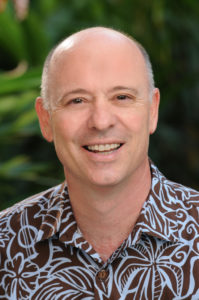 Michael Broderick
Michael Broderick
Michael Broderick’s career resembles that of a cat—nine lives. Michael has been a lawyer, an administrator, a mediator and facilitator, a judge and a non-profit CEO. Michael feels best when he can help strengthen the community, especially for the most marginalized in our Island home.
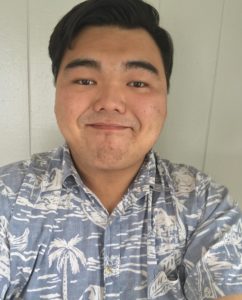
Greg Pōmaikaʻi Gushiken
Greg Pōmaikaʻi Gushiken is a Kanaka Maoli and Okinawan writer and educator from Nānākuli, Hawaiʻi. He is currently an Ethnic Studies doctoral student at UC San Diego and currently resides in Honolulu.
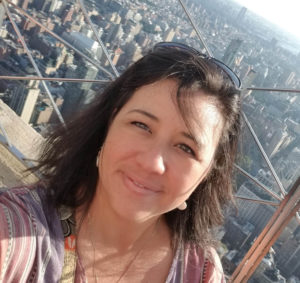
Camille Hampton
Camille Hampton is a kanaka maoli educator born, raised, and still residing in Wai’anae, O’ahu. She is passionate about creating spaces where students and teachers can thrive, which she has been trying to do as an instructional coach at Wai’anae High School. When she is not working, she loves spending time with her family and traveling, even if it’s only around the island.
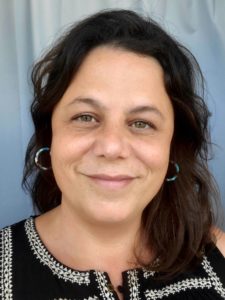
‘Ilima Long
‘Ilima Long is a PhD student in the Political Science department at the University of Hawai’i at Mānoa. She works as a Uniserv Director for the Hawai’i State Teacher’s Association. She has organized around Native Hawaiian, land defense, and labor issues on O’ahu for 12 years.
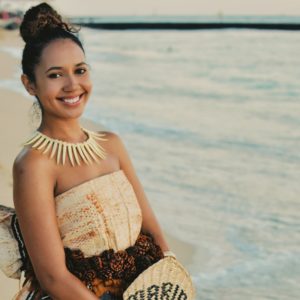
Mara Mahoney
Bula! My name is Mara. I was born and raised in the beautiful islands of Fiji and am currently a guest in Hawaiʻi. My mother is Fijian and my father who is of Yapese descent was born and raised for a number of years in Palau. Being someone who is from and of the region I have always had a passion for Oceania and for the rich and diverse cultures and people that inhabit her. This is what led me to pursue a degree in Pacific Island studies. I am a community navigator, activist, student organizer, and educator.
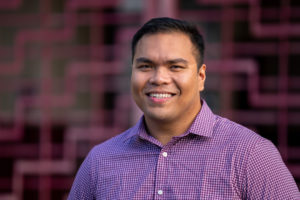
Ryan Mandado
Ryan Mandado is the founding Chief Academic Officer (CAO) of DreamHouse ‘Ewa Beach Public Charter School – a school focused on leadership and identity development. He attended Kalihi public schools his entire life and is committed to providing excellent learning experiences for low-income students and communities. He is passionate about critical and culturally responsive pedagogy and inclusive practices for students with disabilities.
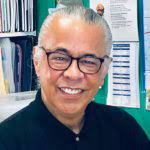 Ric Hanale Ornellas
Ric Hanale Ornellas
In life’s ocean, terra firma for Ric Ornellas has been two islands: Moloka’i and Manhattan. Polar opposites in wealth, population, perspectives, and forces, these two islands have shaped his views of inclusion, confrontation, collaboration, and, most importantly, the power of words and the everlasting reach of literature. Ric is currently a teacher at Moloka‘i High School.
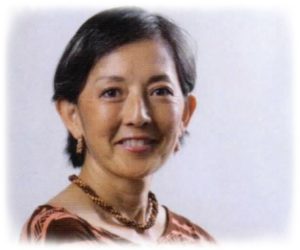 Pauline Sato
Pauline Sato
Pauline’s passion for protecting Hawai‘i’s environment dates back to her childhood. In her 30+ years of professional experience, she has helped to build a broad network of individuals and groups dedicated to the conservation of natural, cultural, and agricultural resources across the state. Pauline’s current and recent work experiences are with the Mālama Learning Center and the Agricultural Leadership Foundation of Hawai‘i reaching people of all ages from a wide range of communities throughout Hawaiʻi. Pauline is a proud graduate of public schools and enjoys working up a sweat outdoors whether in her garden or the native forest, finding new recipes to cook ‘ulu picked from her tree, and being a mom to puppies.
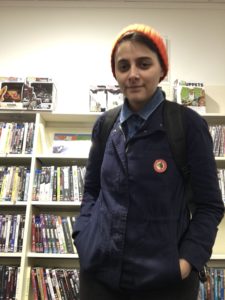 Serena Ngaio Simmons
Serena Ngaio Simmons
Serena Ngaio (she/her, he/him) was born and raised on the island of O’ahu and has spent most of her life right in the heart of Waikīkī. She wen grad from Kaimukī High School in 2011 and in 2016 she graduated with her Bachelors in English from the University of Hawai’i at Mānoa. She’s been a spoken word artist for over ten years and her writing often focuses on queerness, identity, being Māori in diaspora, and decolonization.
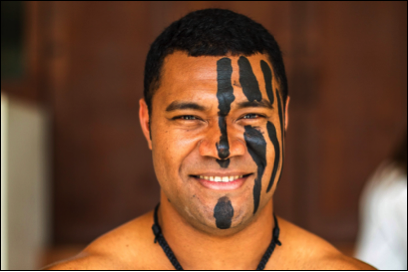
Seru Tagivakatini
Bula Vinaka! My name is Seru Tagivakatini and I am from Fiji. Currently a US South Pacific Scholarship recipient through East West Center working towards a Masters in Animal Science and a Graduate certificate in Pacific Island Studies. I thoroughly enjoy contributing to my Pacific Island Family in whatever way I can and being progressive in ways about it. I enjoy going to the beach and sharing stories with family, friends and anyone that is open enough to have a conversation.
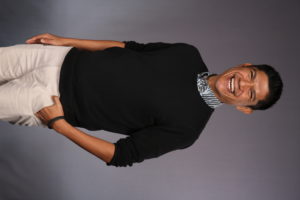 Ben Treviño
Ben Treviño
Ben currently serves as the President and Chief Executive Officer for the Hawaii Institute for Public Affairs. Previously he served as the Sustainability Planner for the Honolulu Authority for Rapid Transportation and was the founding President and COO of Bikeshare Hawaii/BIKI. Ben is a committed LEGO enthusiast who used to enjoy playing basketball before the pandemic.
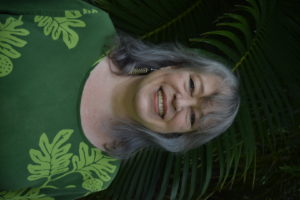 Noe Tupou
Noe Tupou
Aloha nō! I am Michelle Kamakanoenoe Tupou, I am from the ‘Ohana Hapai from Hawaiʻi Island and the ‘Ohana Nelson from Maui. I was born in Waikīkī and raised in ‘Aiea on O’ahu. I am a mother, a wife and a forever Kanaka ‘Ōiwi scholar. I am blessed to work at Windward Community College at the base of the Koʻolau Mountains below the peak of Keahiakahoe. As a Hawaiian Studies Instructor and Director of WCCʻs ‘Ike Kaiāulu: Community Engagement Program, my passions keep me involved in the community and empowering Native voice in indigenous Arts, Literature and Film. I have taught in higher education in both Hawai’i and Aotearoa, New Zealand for over 20 years. My University of Hawai’i Master’s degree in Pacific Islands Studies is entitled “Pacific Voices through Film” in which I speak of film as a powerful tool in bridging oral and written traditions. I did doctoral work at the University of Auckland in the early 1990ʻs at a time of an emerging contemporary Maori and Pacific Island literary and filmmaking community where I was able to continue my passion work in the role of story found within the belly of Oceania.
